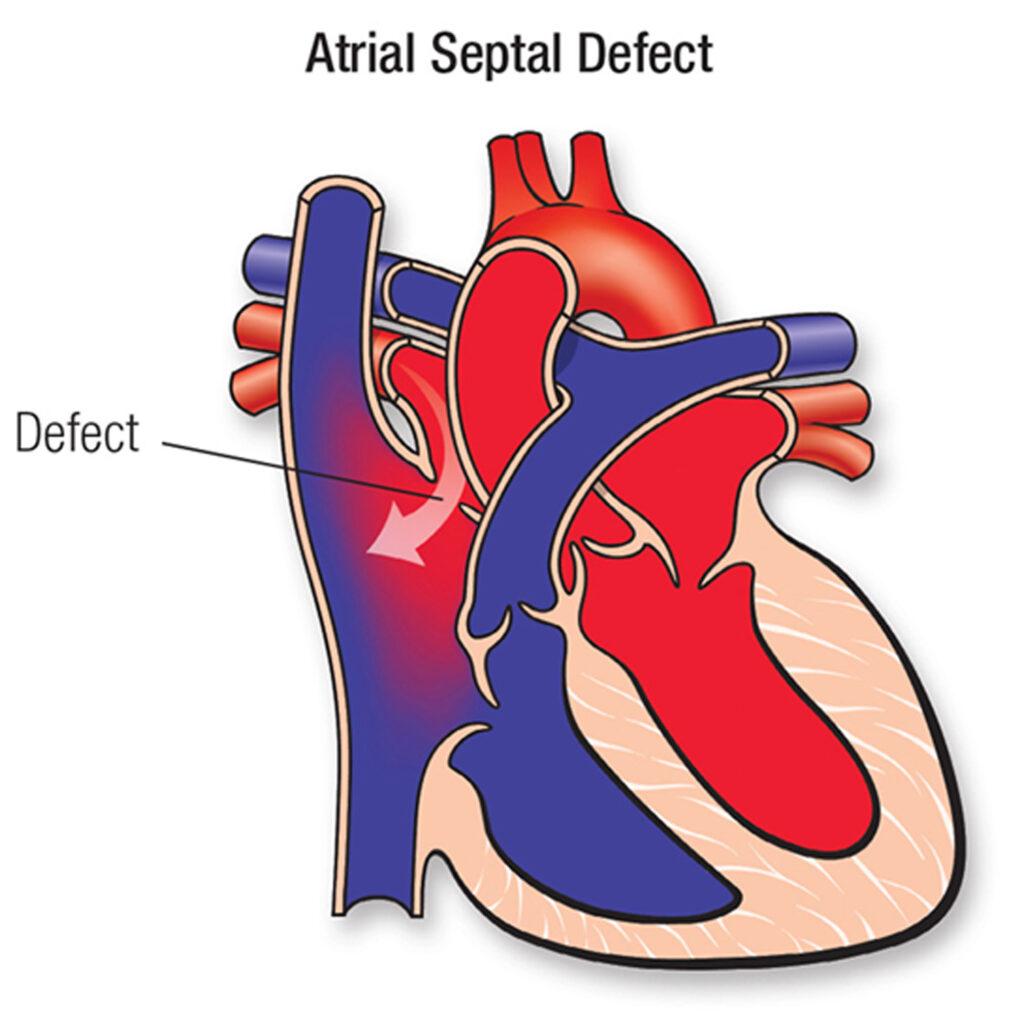Ventricular Septal Defect?
A ventricular septal defect (VSD) is a heart defect that occurs inborn. Individuals with a ventricular septal defects are born with a hole in the heart. This hole allows blood to flow from the left ventricle, where it is oxygen-rich, to the right ventricle, where it is oxygen-poor. As a result, the heart has to work harder to pump enough blood to the body, and the lungs may become congested due to increased blood flow.
The severity of a VSD can vary depending on the size and location of the defect. Some small VSDs may close on their own or not cause any significant problems, while larger VSDs may require surgery or other medical interventions to correct.
The exact cause of the ventricular septal defect (VSD) is not fully understood, but it is believed to be a combination of genetic and environmental factors.
A ventricular septal defect (VSD) can be diagnosed in several ways, including a physical exam, electrocardiogram (ECG), Chest X-ray, Echocardiogram, and cardiac catheterization.
If the ventricular septal defect is suspected, further testing and evaluation may be necessary to determine the size and location of the defect, as well as the overall function of the heart. Treatment options will depend on the severity of the VSD and the individual’s overall health and medical history.
What are the Symptoms of Ventricular Septal Defect (VSD)
Symptoms of a ventricular septal defect (VSD) may include difficulty breathing, poor infant feeding and growth, fatigue, rapid breathing, and sweating during feeding or exertion. Some babies born with VSD may not show symptoms at birth, and the condition may only be discovered during a routine checkup with a pediatrician or cardiologist. Sometimes, the defect may close on its own without any treatment. In contrast, surgery or other interventions may be necessary in other cases to repair the defect and prevent complications.
The symptoms of VSD can vary depending on the size of the defect and the extent of blood flow between the ventricles.
Here are some common symptoms of VSD:
- Shortness of breath,
- Rapid breathing,
- Sweating while feeding or exerting,
- Fatigue or tiredness,
- Poor weight gain and slow growth,
- Rapid or irregular heartbeat,
- Swelling in the legs, feet, or abdomen,
- Heart murmur,
- Bluish or pale skin due to a lack of oxygen
Treatments Ventricular Septal Defect (VSD) in Turkey (Türkiye)?
Turkey has many highly trained and experienced cardiologists and cardiac surgeons specializing in diagnosing and treating Ventricular Septal Defects (VSD). Many medical professionals have received training and education in leading institutions worldwide. They are fluent in English, making it easier for patients from other countries to communicate with them.
There are various treatment options for Ventricular Septal Defect (VSD) in Turkey. Treatment options for VSDs may include medications to manage symptoms, surgical repair of the defect, or cardiac catheterization procedures to close the opening. The specific treatment plan will depend on the size and location of the VSD, as well as the individual’s overall health and medical history. With proper treatment and follow-up care, many people with VSDs can lead healthy, active lives.
The healthcare system in Turkey is well-regulated and closely monitored by the government, ensuring high standards of quality and safety. Many hospitals in Turkey are accredited by international organizations such as Joint Commission International (JCI), which guarantee of quality and safety.
For further information, please contact…

